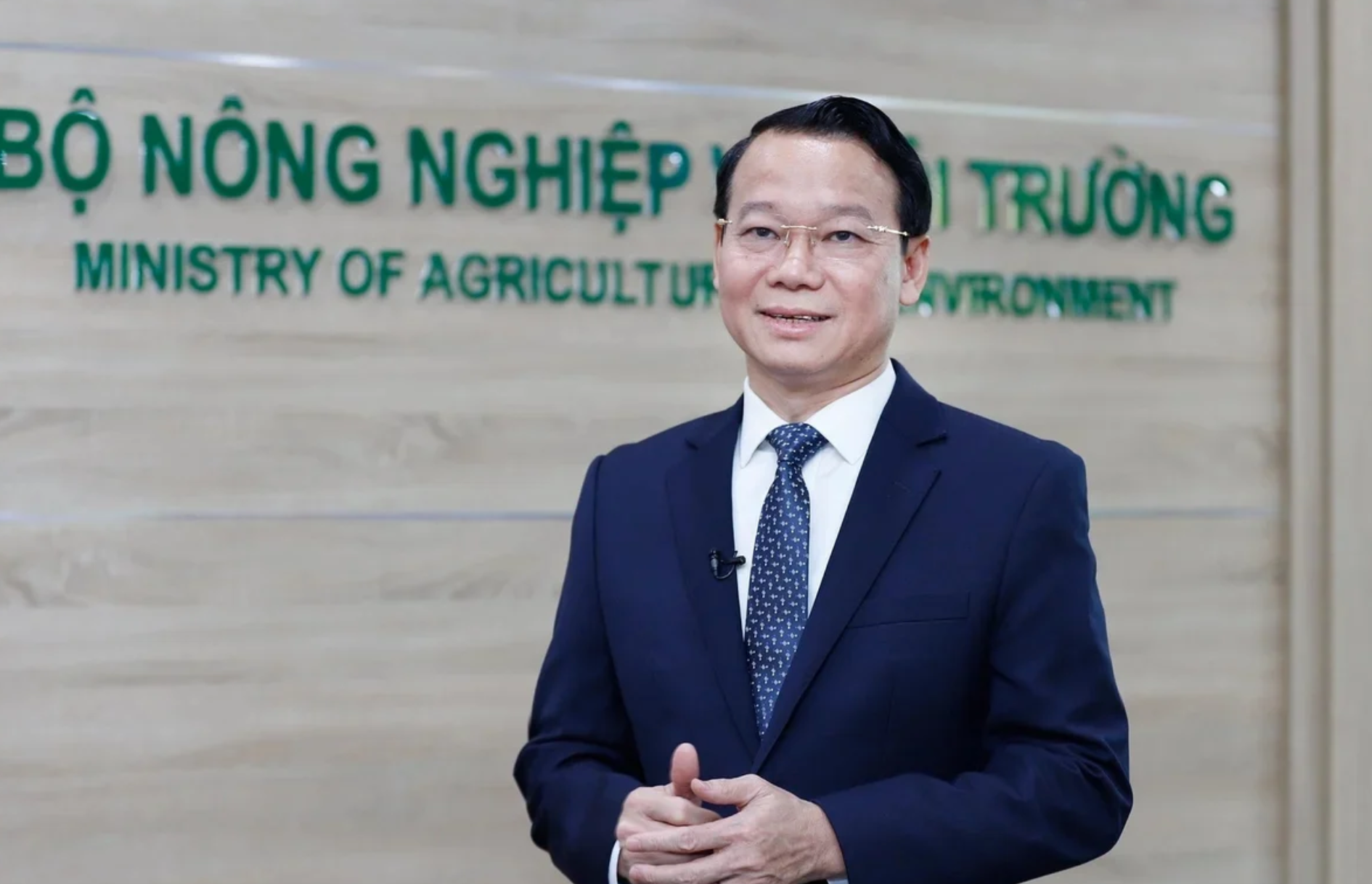Minister of Agriculture and Environment Do Duc Duy led a high-level Vietnamese delegation to the United States, marking an important effort to reinforce bilateral agricultural cooperation and explore new trade opportunities.
 Minister Do Duc Duy hopes that Vietnam and the United States will increasingly connect closely, improving the competitiveness of exported agricultural and forestry products. Photo: Khuong Trung.
Minister Do Duc Duy hopes that Vietnam and the United States will increasingly connect closely, improving the competitiveness of exported agricultural and forestry products. Photo: Khuong Trung.The mission, which began on June 2, includes nearly 50 representatives from Vietnamese agricultural agencies, businesses, and industry associations. Over the course of a week, the delegation is holding meetings in Iowa, Ohio, and Washington D.C., aiming to deepen trust between the two nations and promote joint participation in agricultural supply chains. This visit is also a symbolic gesture, taking place during the 30th anniversary of diplomatic relations between Vietnam and the United States.
Minister Duy emphasised that Vietnam and the U.S. are both agricultural powerhouses, yet their export portfolios complement rather than compete with each other. With growing alignment in supply chain connectivity, he expressed hope that bilateral collaboration would continue to elevate the competitiveness of key export products while benefiting both producers and consumers.
He highlighted that Vietnamese agricultural businesses are actively increasing imports of U.S. agricultural goods - such as corn by-product powder, soybeans, dairy products, and animal feed - to balance trade while integrating more closely into the shared supply ecosystem. In turn, American consumers are showing increasing preference for Vietnamese spices, tropical fruits, seafood, and wooden furniture, reinforcing Vietnam’s role as a trusted supplier in the U.S. market.
The agricultural trade relationship is already yielding tangible results. In 2024 alone, Vietnam’s seafood sector contributed nearly $2.1 billion in export revenue. With Vietnamese farmers and cooperatives rapidly modernising and professionalising their operations, there is strong interest in accessing American technology, materials, and expertise. High-quality agricultural inputs and scientific advancements from the U.S. are seen as vital levers to boost Vietnam’s productivity while supporting sustainable development.
Vietnamese firms are also exploring opportunities to purchase key U.S. exports such as livestock feed ingredients, bio-based fertilisers, cold-water seafood, processed meat, and raw timber. These products are expected to support both Vietnam’s export chains and domestic consumption needs.
However, this promising trajectory faces turbulence from impending U.S. trade policy shifts. Dr. Nguyen Do Anh Tuan, Director General of the Department of International Cooperation under Vietnam’s Ministry of Agriculture and Environment, raised serious concerns over the U.S. administration’s recent decision to impose a 10% tariff on Vietnamese exports starting April 2, with a potential increase to 46% by July 9. According to Dr. Tuan, such high tariffs risk undermining business profitability, weakening the competitiveness of exporters, and ultimately severing carefully built supply chains between the two nations.
 In 2024, the seafood group alone contributed nearly 2.1 billion USD to the country's export turnover. Photo: Son Trang.
In 2024, the seafood group alone contributed nearly 2.1 billion USD to the country's export turnover. Photo: Son Trang.He further warned that price increases in essential goods like food and agricultural products could negatively impact U.S. consumers - particularly working-class households - during a time of economic uncertainty. Vietnamese authorities, he stressed, are committed to maintaining open dialogue with American federal and state agencies, businesses, and associations to preserve the momentum of trade growth.
From 2020 onward, 18 memoranda of understanding (MoUs) were signed between Vietnamese enterprises and American agricultural exporters, with a total value of $6 billion. Half of these agreements - worth $3 billion - have already been implemented. These MoUs not only help meet Vietnam’s demand for agricultural inputs but also serve as platforms to harmonise regulatory requirements and clarify technical standards.
At the government level, numerous bilateral agreements have been signed between the Vietnamese ministry and U.S. state and federal authorities, laying the legal groundwork for broader trade and technology cooperation. Vietnam has also made concrete strides to facilitate U.S. market access. So far, it has approved the registration of 509 U.S. meat-producing firms and 232 seafood exporters. Vietnam is also among the first eight Asian countries to approve biotech-based crop varieties developed in the U.S., having granted clearance to 61 applications to date.
In addition, both sides have worked together to streamline procedures for sanitary and phytosanitary inspections, ensuring transparency and efficiency. These efforts have created a favorable environment for market entry and have contributed to mutual growth.
The recently issued Decree No. 73/2025/ND-CP, effective March 31, 2025, further reduces tariffs to 0% on key U.S. agricultural exports to Vietnam. This proactive measure has supported sustained trade growth, with two-way agricultural exports expanding at an annual average of 10% over the past decade.
 Director of the International Cooperation Department Nguyen Do Anh Tuan said that the US tariff policy could disrupt the bilateral agricultural supply chain. Photo: Tung Dinh.
Director of the International Cooperation Department Nguyen Do Anh Tuan said that the US tariff policy could disrupt the bilateral agricultural supply chain. Photo: Tung Dinh.Despite looming uncertainties, the U.S. Embassy in Hanoi remains optimistic. In a recent interview with the Vietnam Agriculture and Environment Newspaper, the U.S. Foreign Agricultural Service reaffirmed its commitment: “Ensuring fair market access and reducing tariffs remain top priorities to maintain long-term trade growth between the United States and Vietnam.”
As the Vietnamese delegation continues its U.S. visit, the focus is not only on negotiating solutions to emerging trade barriers but also on building a resilient, inclusive, and mutually beneficial agricultural partnership - one that can withstand external shocks while contributing to global food security and economic stability.